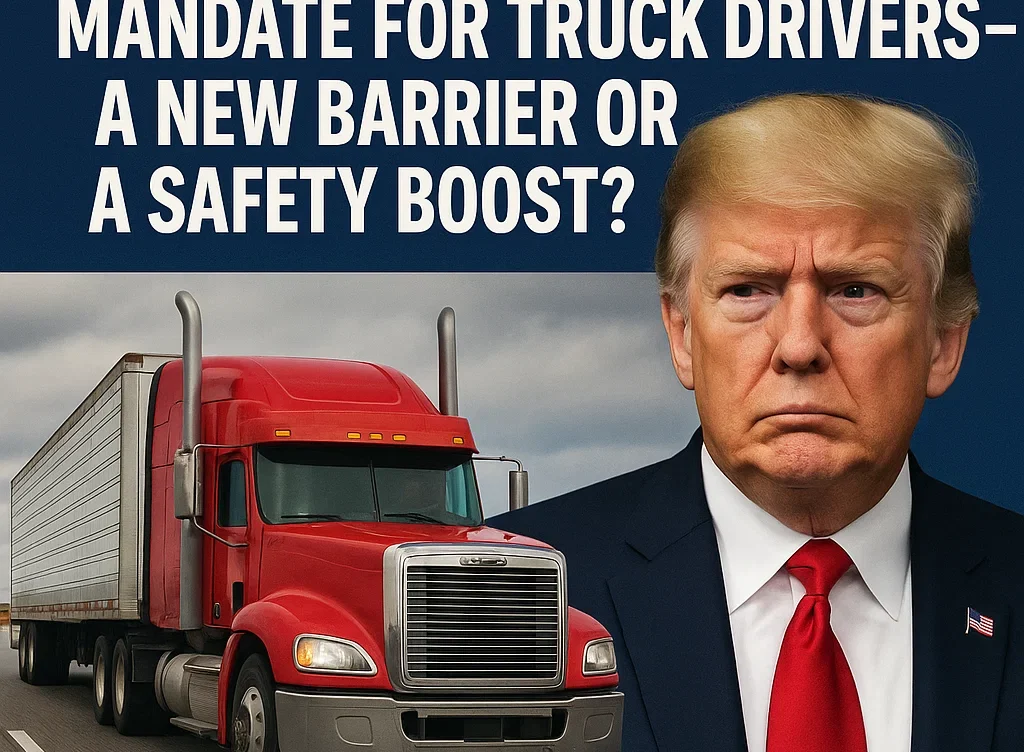
Trump’s English Language Mandate for Truck Drivers—A New Barrier or a Safety Boost?
On April 28, 2025, President Donald Trump signed a new executive order requiring all commercial truck drivers operating in the United States to be proficient in English. The administration claims the move is intended to improve road safety by ensuring drivers can understand road signs, communicate with law enforcement, and complete necessary documentation.
While the stated goal is public safety, the political undertones are hard to ignore. The executive order reverses more flexible guidelines introduced under President Obama, and it comes at a time when immigration and labor policies are under intense scrutiny. Critics argue that this move disproportionately affects immigrant drivers, especially those from China, India, Mexico, and other non-English-speaking countries. For many of these workers, trucking has long been an accessible gateway into the American economy. Now, they face a sudden, high-stakes barrier.
Supporters of the policy argue that it is “common sense”—a truck driver operating tens of thousands of pounds of freight should certainly be able to read and respond to road signs, emergency instructions, and official paperwork. They believe the rule will enhance the professionalism and safety of the trucking industry, already under strain due to driver shortages and an aging workforce.
However, the timing and framing of this policy seem more political than purely practical. It fits into Trump’s broader push to reassert American identity—seen earlier with his order declaring English as the U.S.’s official language. Moreover, by tightening the rules for foreign-born drivers, the administration could be aiming to satisfy his voter base, many of whom have expressed concerns over immigration and job competition.
In practice, this order could worsen labor shortages in the trucking industry. Many U.S. companies already struggle to find qualified drivers, and immigrant workers make up a significant portion of the labor force. While English proficiency is indeed important for safety, critics say the government should invest in support programs—like subsidized English training—rather than issuing blanket mandates that punish workers without offering solutions.
In short, Trump’s executive order represents a dramatic shift toward stricter nationalistic policies, disguised under the banner of “road safety.” Whether it will truly make highways safer, or simply sideline thousands of hardworking immigrant drivers, remains to be seen.
